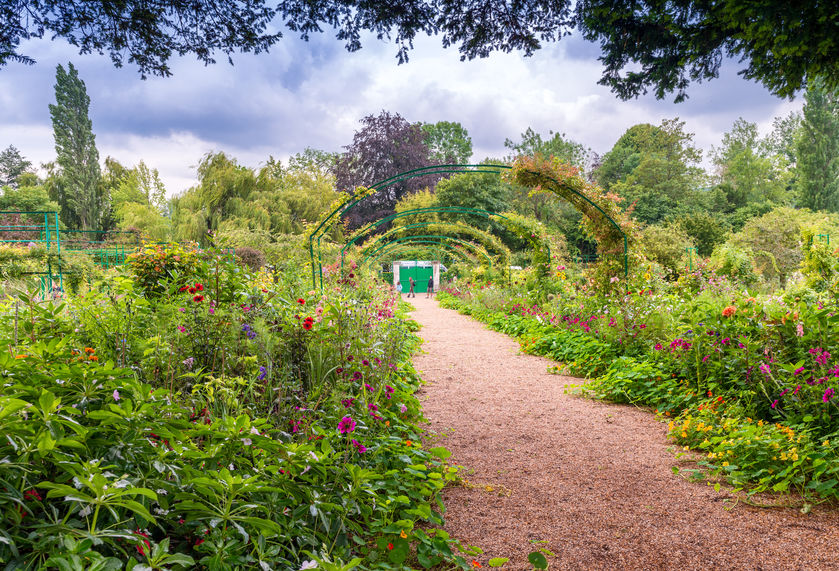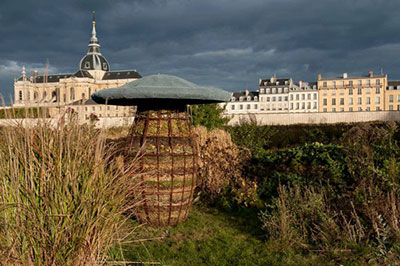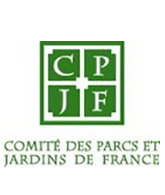Aujourd’hui – comme toujours – nos arbres, nos plantes
et nos jardins demandent si peu de nous
pour ce qu’ils nous donnent en retour.
Here, a glimpse of two jardins à la française — as Audrey knew and loved them, and as they beautifully are today. Claude Monet’s Giverny and Jardin du Luxembourg.
Audrey Hepburn breathing in the beauty of her mise-en-scène in between takes — while filming what was to become her Emmy-award winning performance.
Audrey Hepburn (host) • Outstanding Individual Achievement • 45th Primetime Emmy Awards • Informational Programming • Gardens of the World, PBS, Flower Gardens episode
Photo Insert: Director of Photography Jeri Sopanen and crew
Production Still Photos by Mick Hales • Copyright Perennial Productions, Inc.
Giverny, June 11, 1990
Almost to the day, ten years after Claude Monet’s gardens first opened to the public.
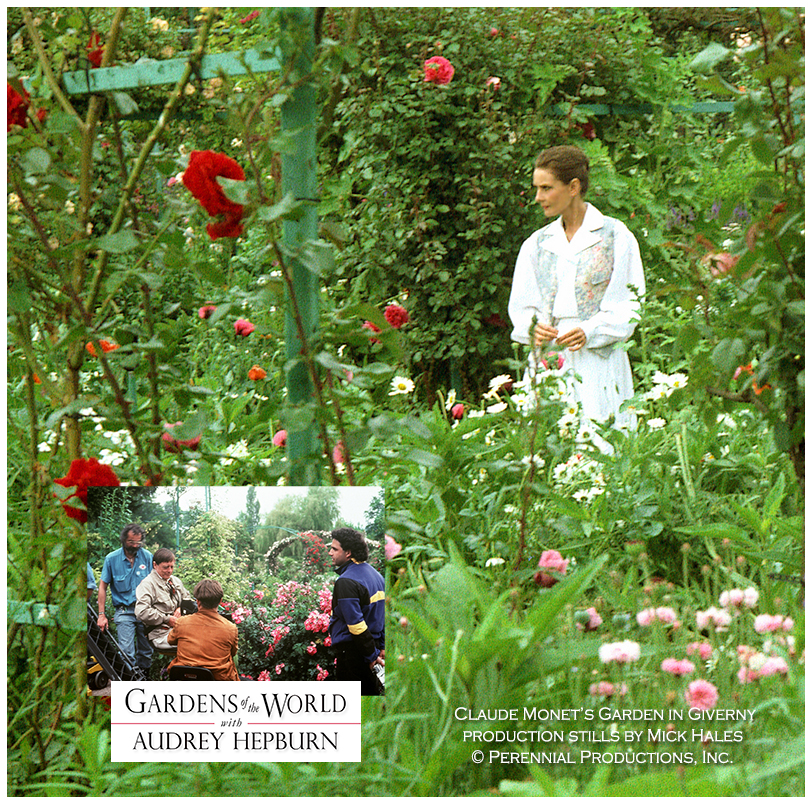
“I must have flowers. Always and always.”
― Claude Monet
Above: The Grand Allee • Photo © 2019 Jovannig@123rf
Camille Saint-Saens: Piano concerto no. 5 in F major., opus 103, Allegro animato • Royal Concertgebouw Orchestra
Conducted by Andris Nelsons
Jean-Yves Thibaudet, piano

Of Audrey and Gardens Audrey’s love and life partner, Robert “Robbie” Wolders, who was by her side throughout the production as well as for all her travels and UNICEF work, wrote:
“The making of Gardens of the World was an intensely personal and creative process for her. She immersed herself not only in the beauty of the gardens, but also in their origins and evolution.
She recognized how the gardens that so enthralled her during filming were attributable to the care and stewardship by previous generations, sometimes through centuries.
It also came at a time when Audrey had become deeply involved with her UNICEF work, which served to even further increase her awareness of the fragility of life and nature – of the need to nurture our children and their environment.
Looking back now, [in 2016] I find it extraordinary how Audrey’s most closely held hopes for the series – for the appreciation of gardens and nature, for the well-being of our beautiful planet for future generations – are perhaps even more relevant today.”
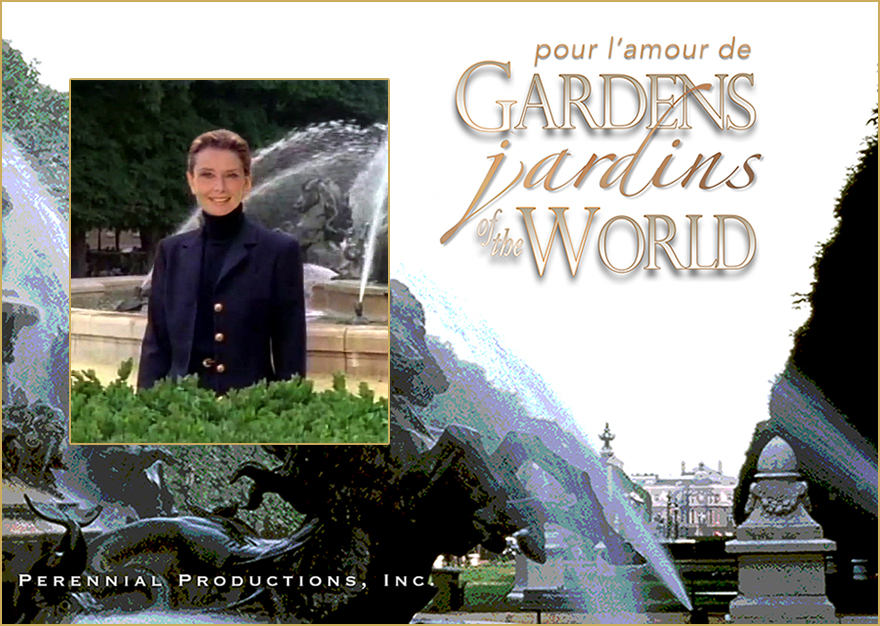

Northeast aerial view of Jardin du Luxembourg
from the Mount Parnasse panoramic terrace.
Photo copyright Bennymarty123rf.com
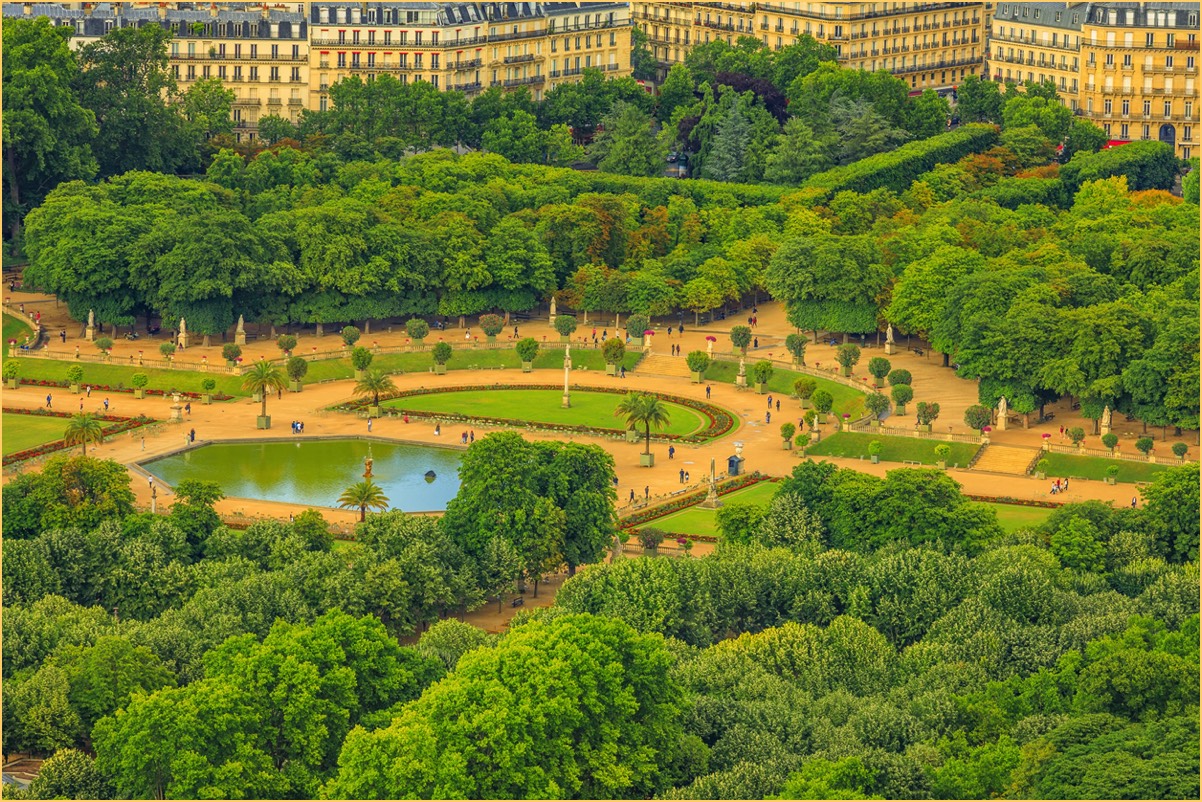


Claude Debussy’s Children’s Corner Suite
1st Movement, Doctor Gradus ad Parnassum
1993
1913
Jardins d’avenir ou
l’art de la biodiversité heureuse
Vidéo of du jardin des Sculptillonnages avec Claude Pasquer
ÉDITION 2011 • Domaine de Chaumont-Sur-Loire • Festival International Des Jardins

Art contemporain et
développement durable
Le Champicomposteur
Contemporary art and
sustainable development
Le Champicomposteur
au Potager du Roi - Versailles -
Photographie Alexandre Petzold
